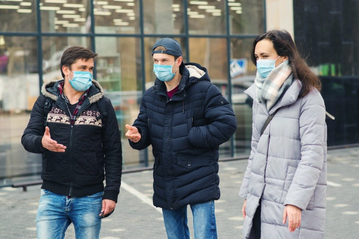 We’re getting used to wearing masks, but figuring out what we’re looking at can stump even experts in face reading. “We use face recognition in every aspect of our social interaction,” said Erez Freud, a psychologist with the Centre for Vision Research at York University in Toronto. In the faces of others, we find clues about their personality, gender, and emotions. “This is something very fundamental to our perception. And suddenly, faces do not look the same,” Dr. Freud said. That’s why Dr. Freud and colleagues decided to study how masks impair facial recognition. They recruited some 500 adults to complete a common face memory task online. Participants viewed unfamiliar faces, then tried to recognize them under increasingly difficult conditions. Half the participants saw faces with surgical-style masks covering mouths and noses, and scored substantially worse. In fact, 13 percent of participants struggled so much they may as well have suffered from prosopagnosia, or face blindness. Authors at the University of Stirling in Scotland posted a similar study: 138 adults completed online face-matching tests. When masks were superimposed, people performed worse — even when the faces belonged to familiar celebrities. One of the main takeaways has been that facial recognition happens holistically, or all at once; we don’t scrutinize people’s features piecemeal. But all isn’t lost. Research shows that out of all facial features, we rely most on the eyes. Even if we struggle to know who we’re looking at when only their eyes are visible, we may still pick up information about a person’s identity and emotions. “We also use other cues, and we can fall back on some of those other cues if they are helpful,” said Marlene Behrmann, a cognitive neuroscientist at Carnegie Mellon University. For example, we might recognize people by the way they walk or talk, or by their facial hair or hairstyle. Have you been having a difficult time recognizing masked faces? What cues do you use? To join the conversation, click "comments" above.
0 Comments
Your comment will be posted after it is approved.
Leave a Reply. |
Archives
July 2024
Categories
All
|
|
Glaser & Associates, Inc.
Executive Offices 1740 Craigmont Avenue, Eugene, OR 97405 541-343-7575 | 800-980-0321 [email protected] |
© 2019 Glaser & Associates. All Rights Reserved.


 RSS Feed
RSS Feed